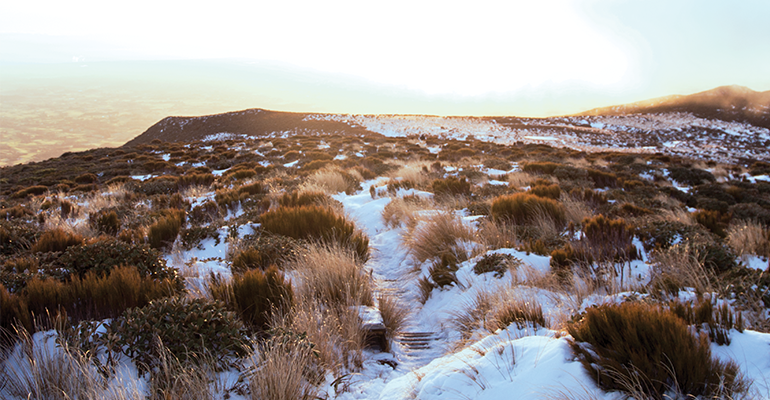- Impacts & Adaptation
Research Programme
- Andrew Mackintosh
Victoria University of Wellington - View the full team
Project Lead
-
Budget
$389,213 -
Duration
March 2017-June 2020
-
Completed project
Snow, ice and glaciers in our changing climate
The impact of climate change on New Zealand’s frozen water resources
New Zealand is projected to warm by 1-4°C during the 21st century. This warming will melt our frozen water resources – our snow, ice and glaciers. However, the scale, area and timing of changes to our meltwater are unclear.

Mountain rivers in both the North and South Islands of New Zealand feed our largest hydro-electric power schemes, and provide critical water for irrigation, especially during drought. Melting snow and ice may also cause increased flooding.
Our aim with this research was to make projections about how runoff from New Zealand’s glaciers and seasonal snow will change into the future. We also engaged with iwi and with local authorities to determine the specific needs of communities that utilise water flows. This data is crucial for decision makers in government, communities and industry – all of whom rely on this climate-sensitive resource.
This project brought together, for the first time, New Zealand’s leading snow and glacier scientists. Together we developed computer models to simulate how snow and ice respond to climate change scenarios. We made projections of all New Zealand glaciers, and tested models to make projections of future snow and ice cover and the resultant runoff from alpine catchments. We investigated the future availability of spring and summer meltwater from snow, and probable changes in summer flow as glaciers are lost.
We also looked at extreme weather events, providing some insight into the frequency and likelihood of large snowfall events, for example, or ‘rain on snow’ events which can cause exceptional floods. We aimed to identify the extent to which snow and ice melt might ease the effects of drought, and whether this protective effect will continue in the future.
Improved water projections are essential for the development of climate change adaptation policies that can balance both the financial and intrinsic value of water.
This project in the media:
- Action now for a flurry later, Otago Daily Times
- Will climate change mean the end of snowy weather? Stuff
- The Final Meltdown, NZ Geographic
- ‘Massive snow melt’ concerning: researchers, Radio NZ
- Climate change: How will it affect irrigators? Irrigation NZ Spring 2018
- South Island snow ‘melt-off’ in heat could affect power and irrigation, NZ Herald
- Hot weather having massive impact on New Zealand’s ‘water tower’ glaciers, Stuff
- When the world’s glaciers shrunk, New Zealand’s grew bigger, Stuff
- Adapting to New Zealand’s changing climate, Scoop.co.nz
PROJECT TEAM
-
Nicolas Cullen
University of Otago -
Brian Anderson
Victoria University of Wellington - Te Herenga Waka -
Jono Conway
Bodeker Scientific -
Ruzica Dadic
Victoria University of Wellington -
Tim Kerr
Aqualinc Research Ltd -
Heather Purdie
University of Canterbury -
Pascal Sirguey
University of Otago -
Christian Zammit
NIWA -
Andrew Mackintosh
Victoria University of Wellington